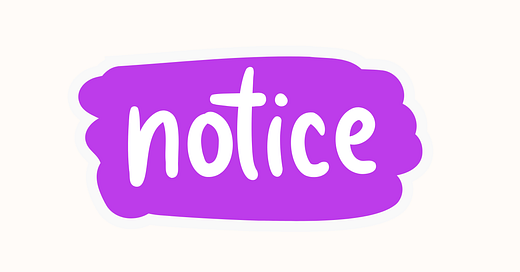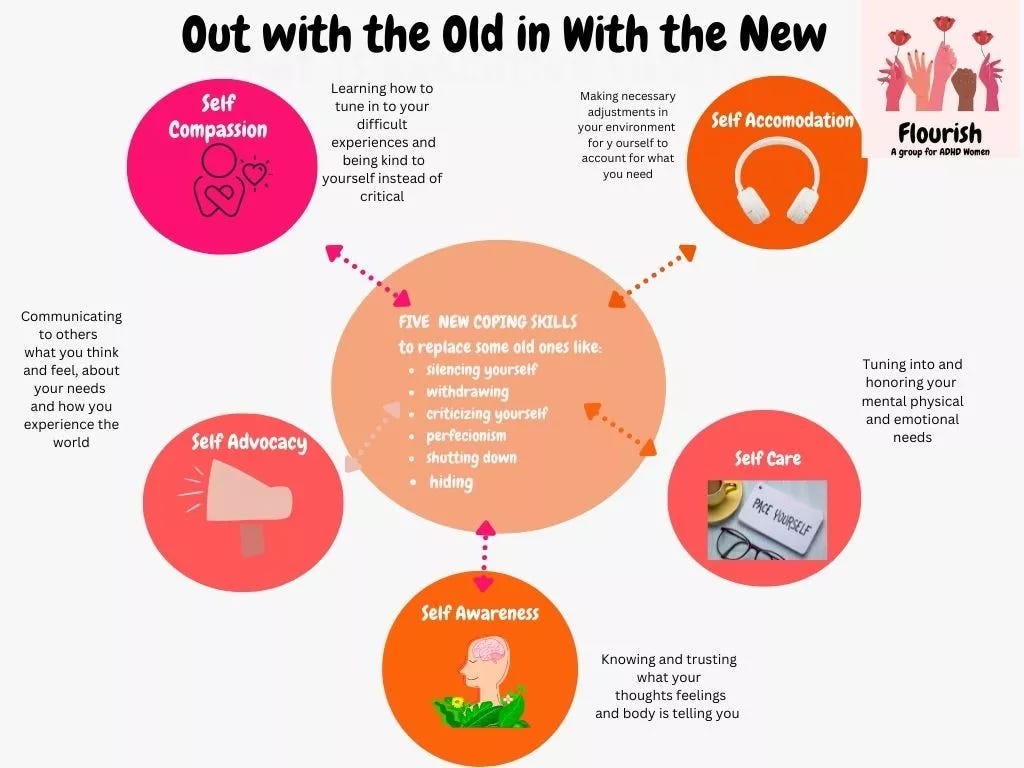If you’ve ever found yourself thinking, “Why did I react that way?” after a conversation with your partner, you’re not alone.
For many ADHD women, rejection-sensitive dysphoria (RSD) can show up in their safe relationships.
It shapes how you hear your partner. How you respond. How safe or unsafe you feel in moments of disconnection.
RSD can create spirals quickly. A look, a tone, a forgotten task can feel like rejection or criticism. When your nervous system floods with shame or anger, it’s hard to stay grounded.
🌿 Why This Happens
ADHD people often have brains wired to detect threat and when that sensitivity is shaped by years of criticism or shame, it can make you especially vulnerable to RSD.
→ You brace for rejection before it even happens.
→ You may interpret small moments as significant threats.
→ You shut down, lash out, or disconnect when you feel threatened.
→ Your partner might do the same, and the cycle repeats.
🌿 How to Start Breaking the Cycle
✅ Notice when you’re activated
Start by pausing.
Are your shoulders tense?
Is your heart racing?
Are you thinking:
“They’re mad. I’ve messed this up.”? ( fill in the blanks)
These are signals, just noticing them can begin to interrupt the automatic reaction.
✅ Name what’s happening openly without shame
Try saying (to yourself or aloud):
→ “This feels like RSD.”
→ “My nervous system is reacting fast—I need a moment.”
Awareness helps you and your partner break free from old patterns.
✅ Take a break
Create a shared signal (a word, a gesture) that means:
“I need a moment to reset.”
Pausing isn’t avoidance. It’s a form of care and regulation.
Come back when you both feel more grounded.
✅ Practice benefit-of-the-doubt thinking
RSD tells you things like,
'They’re disappointed.' They’re upset. They don’t care.”
But most of the time, that’s not true.
When your body is calm and you’ve had time to be more regulated-
Try asking:
→ “What else could this mean?”
→ “What might they actually be feeling?”→” Is there another explanation?”
Curiosity softens the spiral.
✅ Build nervous system care into your relationship
→ Create low-pressure connection time.
→ Talk openly:
“When RSD hits, here’s what helps me…”
→ Respect each other’s boundaries, breaks, and repair styles.
Working with RSD openly in safe relationships is a practice of:
→ Self-awareness: Noticing the pattern without judgment
→ Self-compassion: Offering yourself kindness when old wounds show up
→ Self-trust: Knowing you can come back, repair, and grow new patterns
🌿 If this feels hard, that’s normal.
Many ADHD women were taught to fear their feelings or carry the emotional weight in relationships.
Unlearning those stories is slow, courageous work! And you don’t have to do it all at once.
One step at a time is enough.
I hope this newsletter was helpful to you. If you liked it, share it! It’s free.
Kristen
In the Flourish neurodivergent-affirming support group for women, we explore how Rejection Sensitive Dysphoria (RSD) shows up in everyday life especially in relationships, self-worth, and emotional overwhelm. The group is grounded in my Flourish 5S Empowerment Model a scaffolded, step-by-step approach designed to help you unmask and support yourself, not fix yourself.
This is a welcoming space. All women are invited, and if cost is a concern, scholarships and sliding-scale options are available.
You’ll learn tools to:
Understand and name RSD when it shows up
Practice self-compassion instead of self-blame
Build emotional regulation and connection strategies that actually work with your ADHD brain
👉Learn about the Flourish Model and Community Here
👉 Get into the group. Just put our name on the list for the next cohort here
👉 Therapist/coach curious about the Flourish model? Please! Get on the list for the next affordable coach training here.
I hope you enjoyed this newsletter about simplifying.
If you liked it, please share it.










One thing that really reframed this for me recently, was learning that we actually lose access to our prefrontal cortex when RSD strikes, and only our emotional centers are activated - and highly activated. We need a break because we literally cannot access the part of the brain that helps us to resolve the real or perceived conflict. That gave me (and my partner) a lot of understanding for these situations.
This is so helpful… and a totally new concept for me. Thank you for the enlightenment!!